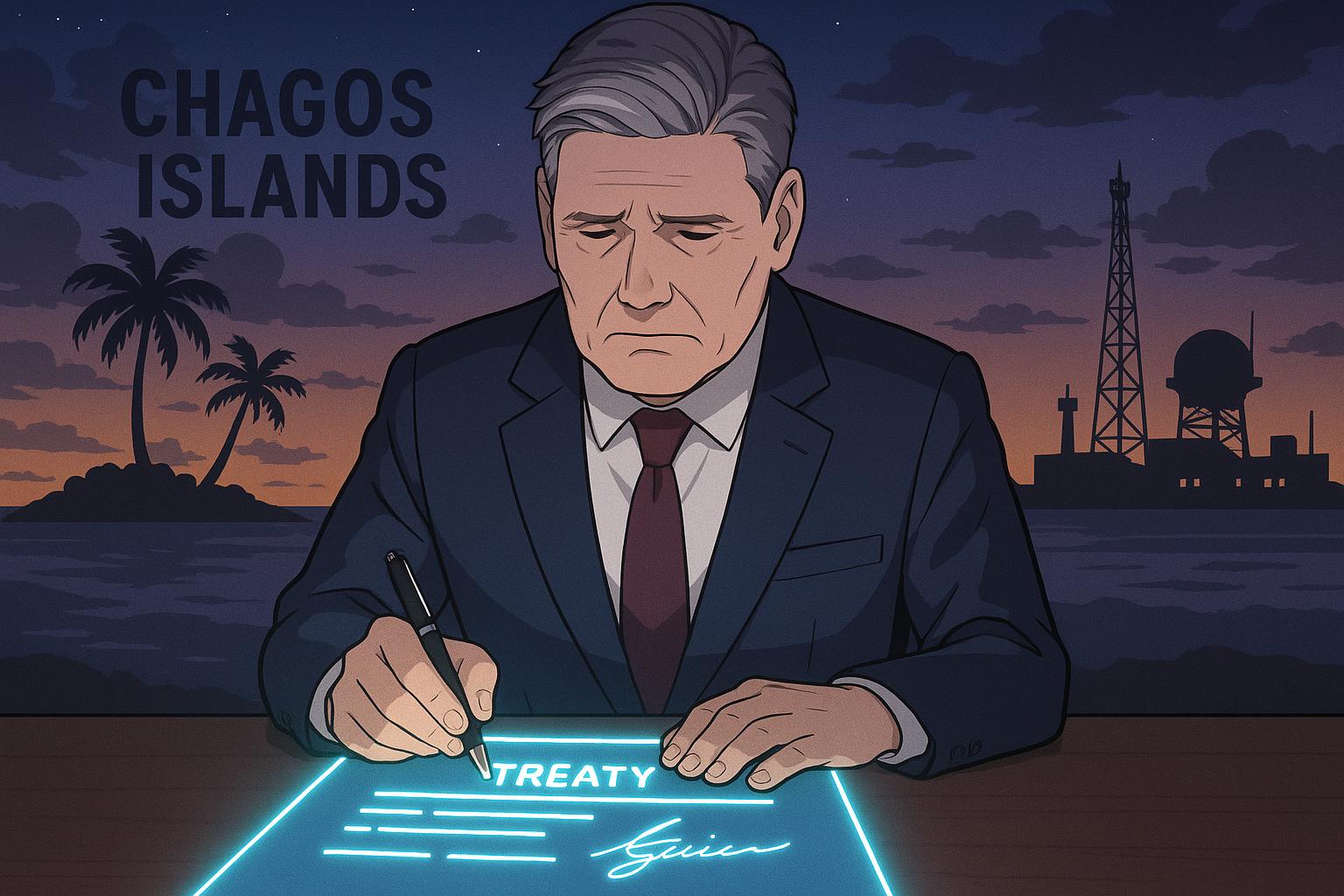Sir Keir Starmer is preparing to formalise a questionable transfer of sovereignty over the Chagos Islands to Mauritius in a "virtual signing ceremony" set for tomorrow. The Chagos Islands, crucial to Britain's strategic interests in the British Indian Ocean Territory, have long been mired in controversy, especially following the forced displacement of the Chagossian people in the 1960s when the islands were ceded to the United States for military purposes—the base on Diego Garcia being a prime example.
This proposed agreement, born from international legal pressures and historical claims, is framed as a step toward rectifying colonial wrongs. However, the reality is that it compromises Britain’s military access to Diego Garcia for both UK and US forces under a contentious 99-year lease. Detractors are raising serious concerns regarding the deal's financial implications and security guarantees, with some estimates suggesting a staggering £9 billion cost to taxpayers, including substantial upfront payments and ongoing rental fees for the continued use of the base. This is nothing short of a betrayal of British national interests.
Critics, including Priti Patel, the Shadow Foreign Secretary, have denounced this initiative as an egregious exploitation of taxpayer money that overlooks the historical grievances of the Chagossians, many of whom are understandably sceptical of Mauritian governance given their past mistreatment. Adding to the complexity are fears about national security amidst rising Chinese influence in the region, a situation that the Labour government seems oblivious to as it furthers this deal.
While some US officials appear to support the arrangement, seeing it as beneficial for regional stability, the endorsement from former President Trump, during a meeting with Starmer, raises further questions about the UK’s sovereignty. The Labour government insists that the agreement complies with international law and is contingent upon parliamentary approval, a claim that carries little weight given the overwhelming opposition from various quarters regarding the management of national interests.
Moreover, the historical context of the Chagossian displacement is essential. Originally separated from Mauritius in 1965, the forced exile of local inhabitants cannot simply be brushed aside. Though the deal allows some displaced individuals a chance to return, community leaders express their frustration over being sidelined during negotiations. The proposal for a “Chagos fund” aimed at funding development projects in Mauritius claims to address historical wrongs, but it rings hollow when the primary concern should be the rights and dignity of the Chagossian people.
As these negotiations unfold, the UK faces heightened scrutiny regarding its strategic priorities and ethical obligations. With international tribunal rulings backing Mauritius's claim and a growing global push for decolonisation, this deal marks a significant misstep in managing Britain’s colonial legacy. Concerns remain not only about the rights of the Chagossians but also about the shifting geopolitical landscape, particularly if Mauritius chooses to align more closely with China in response to perceived slights from the UK.
This deal exposes the inherent conflicts between colonial history, international law, and contemporary geopolitical maneuvering. It starkly highlights the precarious position the UK finds itself in, torn between calls for restitution and the ongoing necessity of maintaining military alliances in an increasingly complex post-colonial world.
Source: Noah Wire Services
